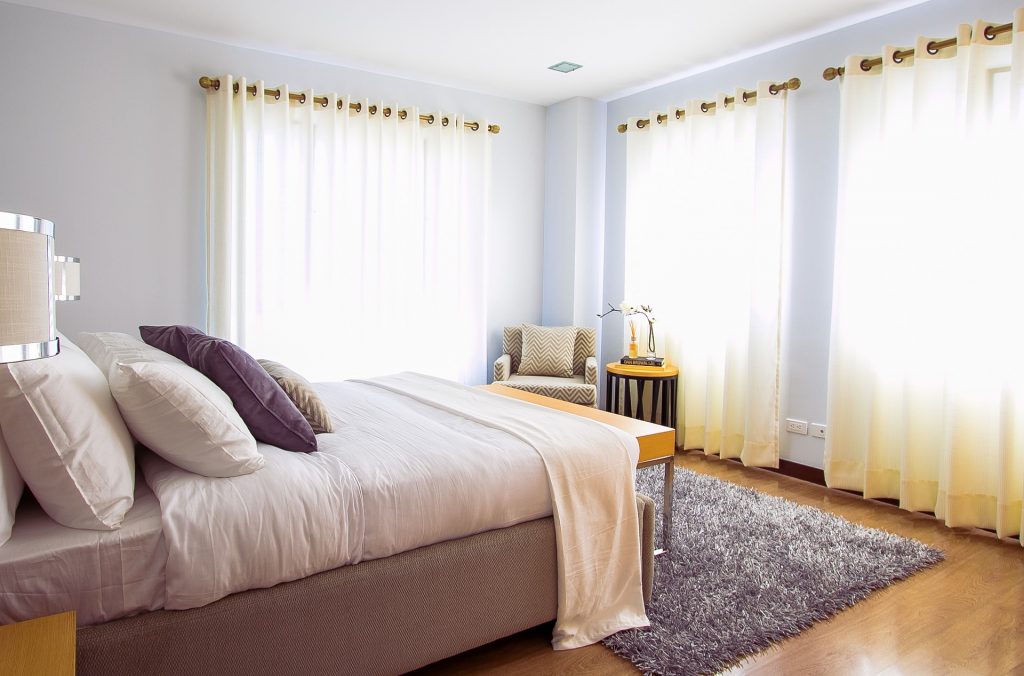It can be difficult to watch your parents and other family members get older. As seniors age, they tend to lose some of their abilities to properly care for themselves, and family caregivers often need to step in to provide extra support.
Providing support can be tricky when you live far away. However, you can use these four caregiving tips to provide adequate senior care, even when you’re a plane flight away.

Invest in Home Safety to Prevent Senior Injuries
As a family caregiver, ensuring senior safety at home should be a top priority. Seniors who plan to age in place can be more prone to household accidents, such as falls. To keep your senior loved one from being injured in a fall, help him/her make a few simple but effective aging in place changes around the home.
Adding grab bars throughout bathrooms, installing ramps around stairs, and eliminating clutter from floors are changes to consider, and these measures can ensure your loved one’s safety at home. Seniors can also be at risk for burns, so have water heaters checked and adjusted to a lower temperature. Think of ways to simplify food prep and cooking, which can help prevent fires and carbon monoxide poisoning. Since accidents can still occur, it’s also important that your loved one keep a first-aid kit and fire extinguisher on hand.
Research Home Security to Protect Solitary Seniors
Keeping seniors safe from outside threats can also help give long-distance family caregivers some peace of mind. One of the most comprehensive steps you can take to ensure that your aging loved one is protected from break-ins and other dangers is to invest in home security. There are countless options to choose from when it comes to modern home security systems, so be sure to do your homework.
Look for features and prices that will fit your long-distance caregiving needs. Some systems may come with mobile monitoring capabilities, which can be beneficial for keeping an eye on a senior who is living alone. You can also check into medical alert options. These detect falls and other household accidents and alert local emergency services so that your loved one will always be connected to lifesaving care.
Make Senior Mental Health Management a Priority
Adequate mental health services are also crucial for seniors who are aging in place and who live far from family caregivers. Thankfully, seniors who are enrolled in Medicare Part B have access to mental health care benefits. Medicare Part B makes seeking out help from a counselor or using psychiatric health services less of a financial burden.
Under Medicare Part B, seniors are also entitled to an annual depression screening from their primary healthcare provider. This screening can help combat the epidemic of loneliness that affects seniors who live alone.
Seniors who feel isolated and alone are more prone to feelings of depression, as well as other mental and physical health issues. So encourage your loved one to use these mental health services, but also look for ways to keep him/her connected. A visit from a Meals on Wheels provider is one way to prevent isolation and depression.
Keep Seniors Healthy with Accessible Health Care
The right Medicare plan can also help you stay in control of your senior loved one’s physical health and wellness. With so many Medicare resources available online, this is something you can easily do on your laptop or phone. Use a phone call or video chat session to discuss Medicare plans with your senior family member.
With a comprehensive and complete Medicare plan in place, you can help your aging loved one keep up with regular screenings and appointments. You may also need to arrange affordable transportation for your loved one. You can do so from afar by looking into local options for rideshare services, public transportation, and medical center shuttle services.
You can’t always live close to your senior loved ones, but that doesn’t mean you can’t provide compassionate care from afar. With a few preventative measures and simple strategies, you can still ensure that your aging family members feel loved, protected, and free from worry. Best of all, you can feel more at peace with being a long-distance senior caregiver.
For more about specific technologies that can help you manage long distance caregiving, read this post. https://maryleemacdonald.org/tech-tips-for-helping-seniors-from-a-distance/
